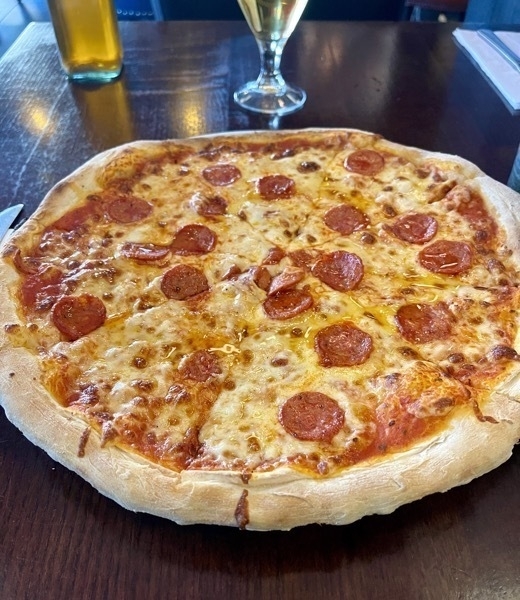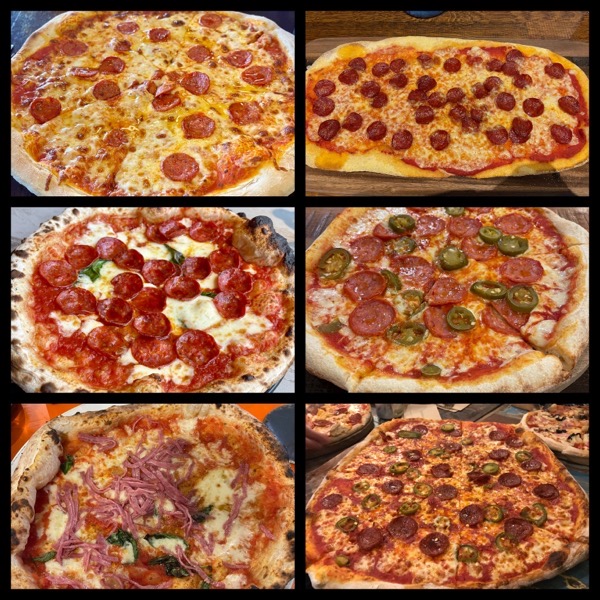
It's 8:22PM. I find myself in a hotel room at the Premier Inn in Kingston Upon Thames. My belly is full of the delightful pizza I ate at Stone's Pizzeria. Ever since Jeremy's visit last week, I've been on quite the pizza eating spree. Jeremy and I share a mutual love for pizza and often joke about how we could eat it every single day. His current dietary needs gave us the perfect excuse to eat pizza nearly every single day he was here—eight out of the nine days he was here, to be precise.
Pizza hunting aside, I've been thinking about my thinking and reflecting on how I approach decisions, big or small, and the concept of "Mental Models" sprang to mind. Have you ever stumbled uppon Shane Parrish of Farnam Street? He writes a lot about mental models. If you're ever curious enough to go a little deep than I'm about to, his blog is a good place to start.
But today, let''s paddle in the shallow end of the pool. I want to share some mental models I often lean on, perhaps offering you a slice (pun intended 🍕) of wisdom in the process.
1. Pareto Principle (80/20 Rule): It's like realizing that just a couple of pizza toppings can define the entire flavor of the pie. Most effects come from a few causes.
2. Occam's Razor: Keep the toppings simple, and you're more likely to enjoy the pizza. Similarly, the simplest explanation is often the right one.
3. Confirmation Bias: It's a bit like always gravitating towards your favorite pizza topping. Our minds often lean into what they already fancy, seeking out information that aligns with our existing beliefs.
4. First Principles Thinking: Elon Musk swears by this. Imagine not knowing what a pizza is and reconstructing it from the basic idea of bread, sauce, and toppings. It's about boiling things down to their essence and rebuilding from there.
5. Hanlon's Razor: When your pizza delivery is late, is it a deliberate act of sabotage or just a traffic jam? This mental model advises, "Never attribute to malice that which is adequately explained by simplicity or oversight.”
6. Dunning-Kruger Effect: Ever met someone who claims to be a pizza connoisseur after trying just one type? It’s like thinking you’re an expert too soon. This model captures those who are overly confident with limited knowledge.
7. Reciprocity: Think about how you feel when someone treats you to a pizza. You naturally want to return the favor. It's in our nature to give back when we receive.
8. Cognitive Dissonance: It's that inner turmoil when you say you're on a diet but can't resist a slice. When we hold conflicting beliefs, we feel compelled to resolve the mismatch.
9. Regret Minimization Framework: Jeff Bezos swears by this. Picture deciding between a classic Margherita or an experimental flavor. You choose based on which you’d regret less in the future.
10. Zero-Sum Game: If there's only one slice of pizza left, and I take it, you won't get any. It’s a scenario where one's gain is another's loss. Useful in competition but not always the best mindset for collaboration.
With all these mental models, sometimes it's about picking the right "flavor" for the situation. And just like with pizza, there's no one-size-fits-all.
So, tell me, which of these models resonates with you the most? Do you have your own "recipes" or ways of thinking that guide your choices?
Cheers to good pizza and insightful reflections!
P.S. And for the record, there's only one true pizza...
